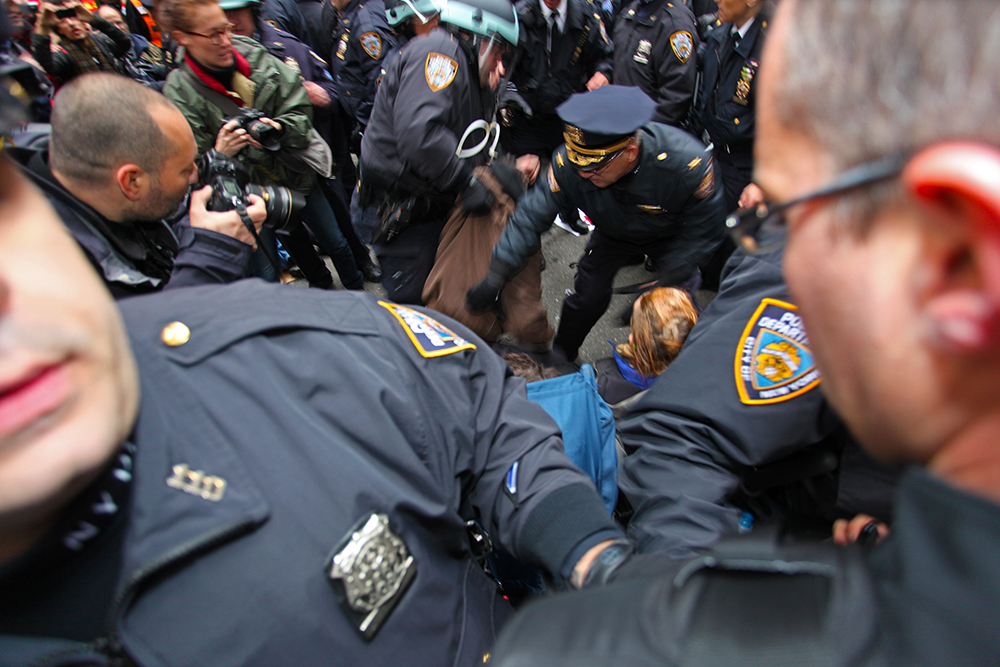Different Types of Police Brutality
 Our Illinois-based personal injury attorneys can attest that law enforcement officers have wide-reaching authority to accomplish their job, as should be expected. There are still definite limitations to police powers. Legal claims of police brutality, abuse or coercion may arise when officers of the law make the choice to go beyond the expressed limits of these powers and cause needless harm and injury.
Our Illinois-based personal injury attorneys can attest that law enforcement officers have wide-reaching authority to accomplish their job, as should be expected. There are still definite limitations to police powers. Legal claims of police brutality, abuse or coercion may arise when officers of the law make the choice to go beyond the expressed limits of these powers and cause needless harm and injury.
The following are some of the legal claims that our police brutality attorneys have seen arise from police abuse or brutality cases nationwide:
- Excess force
- False imprisonment or arrest
- Intentional and malicious prosecution
- Unreasonable search and seizure
- Failure to abide by the rights granted to a pre-trial detainee.
USE OF EXCESSIVE FORCE
A police brutality attorney will explain that, legally, police are only allowed to use the amount of force that is reasonably required to accomplish the lawful duties required by the occupation. The definition of excessive force will depend on the reason why the law enforcement officer attempted to arrest or stop the individual, the way in which the person in question responded, and the circumstances of the stop.
This means it might be considered reasonable for an officer of the law to restrain someone who committed a violent crime and is in possession of a weapon. Police could take action based upon a reasonable belief that the suspect posed an immediate danger, even if their belief was not correct.
However, it is vital to note that an police officer may not hit or hurt a person who does not possess a weapon, a person who is not acting in a life-threatening manner or a person who follows the instructions of the officer. The application of force must halt once the suspect is restrained.
All claims of excessive force taken to a police brutality attorney need to show that there is an injury that is clearly the result of force beyond what the situation warranted.
FALSE IMPRISONMENT
For a claim of false imprisonment to arise, an officer will have to take a man or woman into custody without probable case or an arrest warrant. Probable cause occurs when a law enforcement officer sees a crime being committed or he or she has a reasonable belief that the person had committed or was about to commit a crime.
The perceived reasonableness is based upon the information that is available to law enforcement at the time, even if it turns out to be wrong at a later date.
If law enforcement lacks any legal justification for arrest, the person detained in custody may have a claim for false imprisonment or false arrest.
MALICIOUS PROSECUTION
A claim of malicious prosecution may be claimed when a law enforcement officer initiates a criminal proceeding without reasonable proof that a crime has been committed. The criminal proceeding will usually end in favor of the victim without a conviction.
This type of claim arises because the law is meant to protect anyone from the following, if a criminal matter lacks a legitimate basis:
- Emotional stress
- Embarrassment
- Financial expense.
UNREASONABLE SEARCH AND SEIZURE
In recent years, police powers have been expanded to allow a law enforcement officer to stop any person if there is a reasonable suspicion that a crime was committed and that the person being detained committed the crime. This kind of search allows the law enforcement officer to do a pat-down to ensure that there is no weapon present.
There are still situations where an offer can go to far, and a search is no longer reasonable. The situations for a claim of unreasonable search and seizure include:
- Police entering and searching the home of a suspect without a warrant and without the claim of emergency circumstances
- Police conduct a body cavity or strip search on a suspect who is not under arrest, or one who was arrested for committing a misdemeanor.
RIGHTS OF PRE-TRIAL DETAINEES
Even if a law enforcement officer has a lawful reason to make an arrest, the person arrested may have legal claim to file for damages for any injury that occurs in the jail. When a person is detained, law enforcement has complete control over the detainee and must determine if his or her medical, food, shelter and psychological needs are being tended. Law enforcement officials must also protect the person being detained from inmates in the facility.
Injury due to neglect during detention before the trial may be the basis for an individual to file a claim against the agency that operated the detention facility.
If you or a loved one suffered an injury at the hands of local, county, state or federal law enforcement and you believe the injury was due excessive force, neglect or abuse of authority, contact the police brutality attorneys from Action Legal Group as soon as possible.
